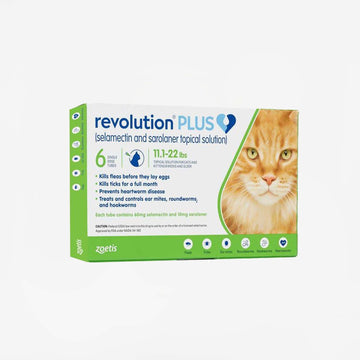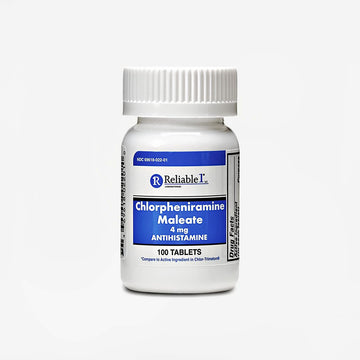Get itch relief for your cat from home with online vet care
Skip the trip and see one of our online vets to get treatment and a prescription. Plans start at $11/mo.

- Unlimited vet visits and follow-ups
- Prescriptions delivered free to you
- 100% licensed veterinarians

Why is my cat itching?
Learn what causes itchy skin in cats and what to do about it.


Fleas and ticks
Fleas and ticks
Fleas and ticks are common culprits when it comes to your cat’s itchiness. These blood-sucking bugs can stealthily latch onto your beloved pet and quickly reproduce. Some cats have hypersensitivity to flea saliva, so flea bites can lead to excessive scratching.
Allergies
Allergies
Like humans, cats can have allergic reactions to foods, flea bites, medications, and environmental allergens such as pollen, dander, and dust. This can result in discomfort and itchiness, among other problems.
Mange
Mange
Mange is an inflammatory skin condition in cats caused by a variety of mites. The condition can cause extreme itchiness, hair loss, redness, scaling, and skin crusts. If left untreated, mange can quickly spread and infect other animals as well as humans so quick treatment is important.
Anxiety
Anxiety
In some cases, your cat’s scratching may be caused by a behavioral problem rather than a physical one. Compulsive scratching and biting at the skin due to stress or anxiety can create more serious skin problems for your cat in the long term.
Medicine & treatments for cat itching
Medicine & treatments for cat itching
If your cat is dealing with itchy skin or compulsive scratching, we’re here to help. A Dutch-affiliated vet can consult with you online to help determine the root cause of the problem and design a custom treatment plan based around your pet’s needs. And prescriptions are delivered directly to your doorstep with free shipping.
How Dutch works
-
Pick a plan and become a member
-
Schedule a video call with a licensed vet
-
Order the prescriptions the vet recommends
Frequently asked questions
What can I use Dutch for?
What can I use Dutch for?
With Dutch, you’re never alone when it comes to your pet’s health. Whether your pet needs care or you just have a question, our compassionate and knowledgeable vets are always happy to help.
Here are some ways you can use Dutch:
- Care & prescriptions for over 150 issues
- Behavioral health, nutrition, and exercise advice
- Puppy, kitten, and new pet parent advice
- Preventive care plans
- Night and weekend vet care
- Second opinions & follow-up care after in-person visits
- Advice on whether you need to go to the ER or urgent care
- Vet care when you’re traveling
- Easy prescription refills
- Longevity treatment plans
- Answers to non-urgent questions
What is a visit with Dutch like?
What is a visit with Dutch like?
You and your pet will have a 10-minute video call with a licensed veterinarian. Here’s what to expect:
Before the call
When booking the call online, you'll be asked a few questions about your pet. Depending on the issue, you may need to fill out a longer questionnaire about their symptoms or share photographs of them so our veterinarians can better understand what’s going on. You’ll then pick an appointment time. Make sure your pet will be with you at that time — the vet will need to see them on the call.
During the video call
One of our vets will talk to you about the symptoms your pet is experiencing, ask you questions, review your pet’s medical history if you’ve provided it, look at your pet on camera, and answer any questions you have. They may ask you to perform some simple checks on your pet, like raising their gums, if needed.
After the call
The vet will send you a message with a custom treatment plan to help your pet feel better, including a link to buy any recommended prescription or over-the-counter medications. Place your order and we’ll ship it free. If you have any questions, you can message your vet anytime or book another appointment with the same vet to follow up.
How do I know if you can treat my pet?
How do I know if you can treat my pet?
Our vets can provide care and prescriptions for more than 150 issues — and over 90% of cases can be treated virtually.
The vet can diagnose your pet based on your description of their symptoms, their medical history, seeing them during your video call, and, if needed, through uploaded photos and videos. They may ask you to do a few simple checks during the call. We also offer a number of at-home lab test kits for dogs and cats.
The health and safety of pets is our top priority. In the rare case that a vet determines a pet needs to go to a local clinic, they’ll provide a referral and offer advice on how to care for them until they can be seen.
Some things that require in-person care include emergencies, wounds that need stitches, and issues that require blood work, imaging (X-rays or ultrasounds), or surgery.
Our vets are always available for second opinions and follow-up care after in-person vet visits — so you don’t have to navigate health issues alone.
How much will it cost for Dutch to treat my pet?
How much will it cost for Dutch to treat my pet?
Our memberships are designed to make your pet’s care as easy and affordable as possible. Here’s how your costs will break down:
Membership: You can choose to pay the total price upfront or in 4 installments. All memberships include unlimited care for up to 5 pets at no extra cost.
Vet calls and messaging: No cost — video chat and message with vets as often as you need for free.
Medication: The price will vary depending on your pet’s needs. To keep your costs down, we offer a price-match guarantee, free standard shipping, $25 off your first product order, and 20% off your first flea & tick order.


